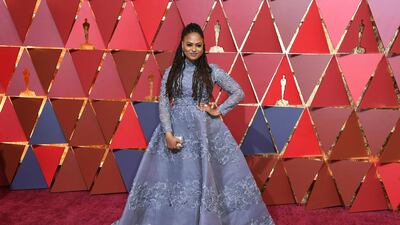When Ava DuVernay wore a dress by a Saudi designer, she made a political statement.
One of the most unassuming superfoods is the brown hairy kiwi fruit. But behind its fuzzy skin is a story of naming success. Even though New Zealand is the largest exporter of kiwi fruit today, its origins lie in China. Arriving into the antipodes at the turn of the 20th century, American soldiers later posted to New Zealand acquired a taste for it, and so the trade to the United States was born.
In this period of the 1940s as the Cold War was setting in, its original moniker, Chinese gooseberry, was a naming catastrophe. The New Zealand exporters toyed with “melonettes” as an alternative, but the American importers hated anything with berries or melons as these attracted higher tariffs. Eventually, in reference to the kiwi bird, the fruit was rebranded to today’s kiwi.
The choice of the name of the mouthwatering green superfood that we have come to love was deeply political. It reflected politics, trade and consumption patterns.
Today’s growing modest fashion industry is struggling with a similar naming problem. This new sector is being driven by Muslim women around the world who want to be fashion forward as well as uphold their faith values. Having visited the high street and found it lacking when it comes to the products it offers and its communication engagement with Muslim women, they’ve established their own businesses, blogs, YouTube stars and Instagrammers to cater for a fashion segment estimated at just shy of half a trillion dollars.
When it comes to Muslim women’s clothing politics is never far behind. France’s minister for women’s equality waded into the fray last summer to criticise Marks and Spencer for selling a burkini online. It seemed more about point-scoring than women’s choices because the item is long-standing and appeals across segments. Last week, Lindsay Lohan was asked to remove the hijab she was sporting at Heathrow airport “out of respect for Syrian refugees”. She said she felt racially profiled, and surely there was a political commentary at play here. Oscar nominee and Golden Globe winner Ava DuVernay wore a dress by a Saudi designer to this year’s Oscars ceremony, saying it was an act of solidarity with the Muslim countries facing the travel ban. Last week, London hosted its first ever Modest Fashion Week.
Clothing related to Muslim women always generates headlines. Muslim women wear clothes and like fashion, who knew?
Yet despite this statement of the obvious, Muslim women’s fashion choices are deeply political. And so, as with the question of the kiwi fruit, its naming carries connotations that must be carefully navigated.
To call it “Muslim fashion” is to limit it to Muslims only, when we know already that it does appeal more widely. Burkini designers say that the majority of their sales are to non-Muslim women, for example.
Modest fashion is criticised by some for implying that those who do not adopt this style are immodest. Which does not really convey the sense of autonomy, choice and individuality that its wearers seek. After all, fashion has always been about expression about the self rather than judgement about others. To proclaim oneself the victim of a fashion point of view seems insecure.
To call it “modest” also belies the vibrancy which its wearers exhibit and instead panders to the idea of being nondescript, oppressive even. If we listen to the creators and consumers of this fashion, it is far from oppressive; they talk instead of liberation and expression.
Other words also seem to fall short. This is far from “traditional” fashion. Nor is it “conservative”, as these styles are breaking boundaries, and challenging our current fashion ideas of beauty and representation.
Finding the right description has so far proved elusive because of the politicisation of Muslim women’s choices, in particular their visual expression, and the right to determine for themselves how they dress. But it’s also because simultaneously trying to counter the stereotypes of what a Muslim woman should look like at the same time as challenging our current norms of female beauty are two of the biggest shifts in point of view that we can imagine.
Whatever the choice, it seems to be political.
Shelina Janmohamed is the author of Generation M: Young Muslims Changing the World
On Twitter: @loveinheadscarf


